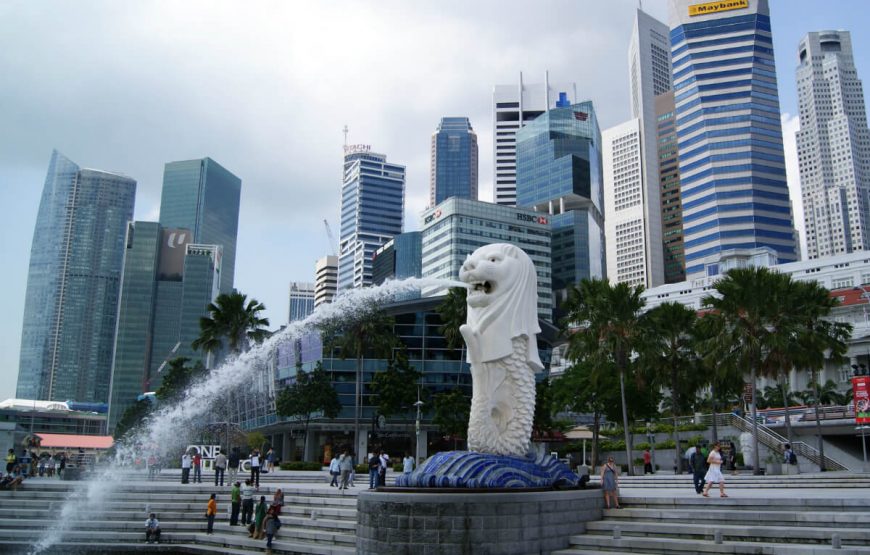Discover Singapore Holidays: Traditions, Celebrations, and Key Details
Singapore holidays reflect the country’s multicultural identity, where traditions from Chinese, Malay, Indian, and Western cultures blend into the national calendar. These holidays exist not only as rest days but as cultural milestones that preserve heritage, encourage community bonding, and promote inclusivity.
Importance of Singapore holidays in modern society
Holidays in Singapore matter because they shape national identity and create shared experiences. They affect multiple groups, including families, schools, workplaces, and tourists.
The importance can be understood across different perspectives:
-
Cultural preservation – Holidays safeguard traditional practices such as lion dances, festive meals, and temple visits.
-
Social bonding – Festivals allow families and communities to gather, strengthening social ties.
-
Economic activity – Public holidays contribute to tourism, shopping patterns, and hospitality demand.
-
Well-being – Designated breaks promote rest, reduce workplace fatigue, and improve productivity.
In a globalized city-state like Singapore, these holidays solve challenges related to cultural understanding by promoting inclusivity and mutual respect. They also provide opportunities for schools and organizations to educate younger generations about the importance of multicultural harmony.
Recent updates and changing trends
Public holiday announcements in Singapore are updated yearly by the Ministry of Manpower. In April 2024, the government released the 2025 public holiday calendar, which continues to recognize the balance between religious and cultural festivals.
Recent trends include:
-
Digital celebrations – With the rise of technology, more events are streamed online, such as Chinese New Year concerts and National Day parades.
-
Environmental awareness – Some communities have shifted toward eco-friendly practices during festivities, including reducing single-use plastics during gatherings.
-
Tourism impact – Post-pandemic recovery has seen an increase in international visitors planning trips around holidays like National Day (9 August) and Lunar New Year.
-
Flexible observance – Many workplaces and schools adopt hybrid celebrations, combining in-person events with digital greetings.
Laws and policies shaping holidays in Singapore
Singapore regulates public holidays under the Employment Act. This ensures that all workers are entitled to public holiday benefits. Employers must recognize official holidays, and if employees are required to work, they receive a compensatory day off or additional pay.
Key policy details include:
-
Annual public holiday list – Published by the Ministry of Manpower.
-
Religious neutrality – Equal representation across cultural groups to maintain harmony.
-
National Day – Recognized as a state holiday celebrating independence (9 August).
-
Substitute holidays – If a public holiday falls on a Sunday, the next day (Monday) is declared a holiday.
This framework highlights the government’s role in ensuring fairness and inclusivity while promoting multiculturalism.
Tools and resources for learning about Singapore holidays
Several resources help individuals and organizations stay updated and plan around holidays:
-
Ministry of Manpower website – Official source for public holiday announcements.
-
ICA Singapore website – Provides travel advisories during peak holiday seasons.
-
Calendar apps – Google Calendar and Apple Calendar integrate Singapore’s public holiday list automatically.
-
National Library Board digital archives – Contain information on the history of holiday celebrations.
-
Tourism Board platforms – Provide cultural guides and event updates linked to festivals.
These resources support not only residents but also international visitors who want to understand the cultural significance of holidays in Singapore.
FAQs about Singapore holidays
1.What are the main public holidays in Singapore?
Major holidays include Chinese New Year, Hari Raya Puasa, Deepavali, Vesak Day, Good Friday, Christmas, and National Day. Each reflects the traditions of different communities.
2.Who decides the list of public holidays in Singapore?
The Ministry of Manpower (MOM) announces the official list each year, ensuring equal recognition of cultural and religious groups.
3.Do all businesses close on public holidays?
Not all. Essential services such as healthcare, transport, and security remain open. However, employees working on holidays are compensated according to the Employment Act.
4.Are holiday dates the same every year?
No. While some holidays like National Day (9 August) are fixed, others such as Chinese New Year and Hari Raya Puasa follow the lunar calendar, leading to varying dates each year.
5.Can holidays be observed differently by communities?
Yes. While the national calendar is standardized, communities celebrate holidays in ways that reflect their traditions, such as temple ceremonies, open houses, or community events.
Conclusion
Singapore holidays represent more than rest days; they are markers of cultural identity, national unity, and social well-being. Rooted in history and regulated by law, these holidays adapt to modern trends such as digital celebrations and eco-friendly practices.By recognizing traditions from multiple communities, Singapore sets an example of cultural inclusivity. For residents, holidays strengthen family and community ties. For visitors, they provide a unique lens into the nation’s heritage. As Singapore continues to evolve, its holidays will remain vital in shaping the country’s shared narrative and cultural resilience.